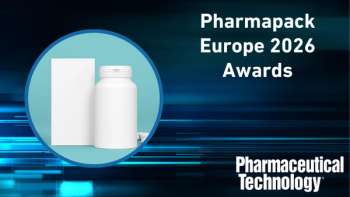
Equipment and Processing Report
- Equipment and Processing Report-04-08-2015
- Issue 5
Pending Guideline Revisions Call For Updated Package Integrity Testing
Revisions to USP General Chapter may impact evaluation of sterile product package integrity.
A proposed revision of the United States Pharmacopeia (USP) General Chapter <1207>, Sterile Product Package-Integrity Evaluation calls for a shift to more quantitative, validated test methods. Although there is no set timetable, industry observers expect the chapter to be effective at the end of 2016.
“The first round of proposed revisions were included in the Pharmacopeial Forum (PF) in September 2014,” says Justine Young, project manager, container closure integrity testing (CCIT) at Whitehouse Laboratories. “The comment period has elapsed, and feedback has been received,” adds Brandon Zurawlow, who also serves as a project manager, CCIT at Whitehouse Laboratories. “The expert committee is now in the process of preparing a second revision to be released to PF. If sufficient comments are received, the chapter will need to undergo an additional revision process,” he explains.
According to Oliver Stauffer, chief operating officer at PTI-Packaging Technologies & Inspection, the revised chapter “clearly outlines the various container closure integrity (CCI) test methods fit for use in the pharmaceutical industry. It identifies deterministic methods that are quantitative and definitive in measuring the integrity of a package. It also identifies probabilistic methods that use qualitative information or attribute results derived from human judgment. The document strongly advises use of deterministic methodology to assure CCI.”
“Many of the technologies included in the revisions have been available for decades,” notes Young. “Despite this,” she says, “industry has continued to rely on probabilistic test methods to evaluate the integrity of parenteral packages.” Once the chapter is effective, she predicts, “FDA will become more stringent in its review process of package integrity data.”
Zurawlow adds, “From discussions with others in industry, FDA is already beginning this shift, and companies are beginning to receive pushback when submitting data obtained by the dye ingress method.” Whitehouse Laboratories already employs deterministic leak-test technologies and currently relies on vacuum decay, mass extraction, helium mass spectrometry, high-voltage leak detection, and laser-based headspace analysis systems.
Stauffer explains, “USP <1207> does not necessarily change methods or technologies. It changes the way that organizations relate to those methods and the information they offer [and]… encourages organizations to adopt test methods that provide the highest level of quality assurance. The chapter removes gray areas within CCI, highlighting some methods that have industry-proven capability, and drives industry to deploy solutions that have a higher detection capability.”
Regardless of the CCIT methodology chosen, testing should be quantitative, repeatable, reliable, and validated for each product-package system. Ideally, any test also should be nondestructive to prevent waste and loss of costly product.
As a result, it seems inevitable there will be a shift from probabilistic testing such as dye ingress to more deterministic methodologies. However, Louis Brasten, supervisor, routine and functional analysis/filling services at West Pharmaceutical Services, notes, “Chapter <1207> has become more of a guideline… No ‘one test’ is the key to defining a client’s closure integrity. It is the right combination of testing that shows the complete picture over the lifecycle of the product.” West relies on state-of-the-art equipment and CCIT techniques to paint a complete picture of CCI for the lifecycle of its customer’s products.
Whitehouse Laboratories provides CCI method development and validation services for client-specific product-package systems in a cGMP, FDA-regulated laboratory environment. “We will work with clients to understand their product-package systems and to determine the most applicable CCI technology to employ for integrity evaluation, offering our knowledge and years of experience to optimize the use of these technologies,” says Young.
For more details, read the
Articles in this issue
almost 11 years ago
Specialized Equipment Improves Tabletingalmost 11 years ago
Choosing Personal Protective Equipment for Handling Cytotoxic DrugsNewsletter
Get the essential updates shaping the future of pharma manufacturing and compliance—subscribe today to Pharmaceutical Technology and never miss a breakthrough.




